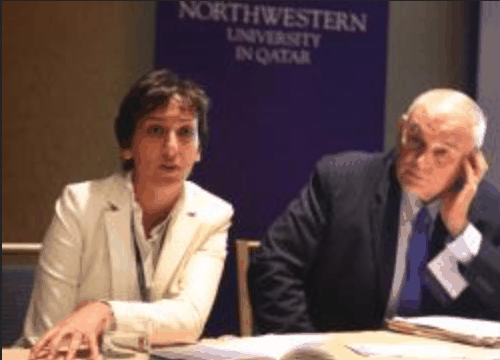One day after the naming of Libya's new president, a panel of media experts, led by Everette Dennis, dean and CEO of Northwestern University in Qatar, assessed Libyan progress toward the creation of a media system that fits and serves the needs of its people.
The panelists had all taken part in a December 2011 'good offices' conference, hosted by NU-Q, at which representatives of the interim Libyan government and society debated and agreed upon principles and an action plan for a national media system.
"It was very unusual for a government to sit down with any outside organization, much less a university," reflected Dennis, who reconvened select participants eight months later in a panel to evaluate the current media situation in Libya and consider how the Doha principles may inform future development.
"The fact that the Libyans themselves produced principles and an action plan derived from these sessions with amazing agreement is certainly a cause for optimism," Dennis said during his remarks at the panel, held on 10 August at the Association for Education in Journalism and Mass Communication's 2012 conference in Chicago, Illinois.
"Libya is not going to be a system that mimics other systems," said Robert Picard, director of research at the University of Oxford's Reuters Institute for the Study of Journalism, commenting on the unique situation facing Libya's media development.
Picard noted that, unlike Egypt and Tunisia, Libya had little media system to speak of before the revolution and now lacks an economic system to support media enterprises. The country's only existing media are subsidized by those with political interests. For media in governmental transitions, this marks uncharted territory.





